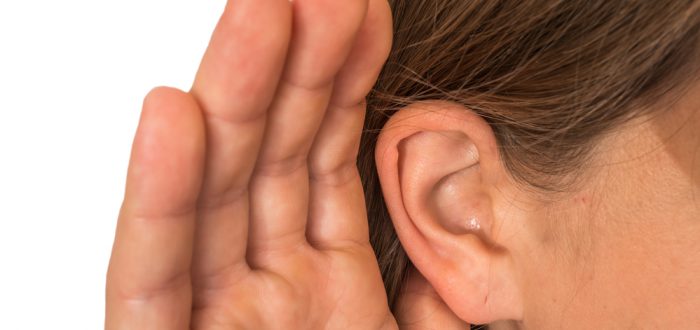Single-sided deafness (unilateral hearing loss) whereby sound is only heard from one ear, is more common than you might think. Around 60,000 Americans develop the condition each year. If you have single-sided deafness, you have likely adapted your lifestyle to accommodate. We’ve put together these 7 tips to help make life with single-sided deafness easier.
- Explain about your hearing, even though it can feel embarrassing. Most people want to help, they just aren’t sure how. If they don’t know you have a hearing loss or that being on your “good” side helps you hear better, they can’t help! Sometimes it can seem harder to tell strangers such as baristas etc, but if you don’t stop to think about it, it’s much easier. Explain when you first meet somebody and then it’s done, this removes many potentially awkward situations and makes life much easier in the long run.
- Ask for what you need as clearly as possible to reduce any confusion. Simple polite instructions are best such as “could you sit to the left of me and look directly at me when you speak please?”
- Use non verbal cues as an alternative to repeatedly interrupting the flow of conversation. Use simple gestures such as cupping a hand behind your ear to indicate that you can’t hear. Lean in a little closer or tilt your head as subtle reminders of which side you can hear best.
- Accept yourself and others will do too. It’s natural that you may feel anxious about communicating or explaining your condition to others. They may also be feeling anxious about how best to help you or prevent any offence. Rather than you both avoiding the opportunity to communicate, set the example by choosing to be open and accepting of your condition. This will help set you both at ease and enable you to move past the issue and into the solutions. Some people find that having a sense of humor about it all can help break the ice and build rapport.
- Pick when to clarify things. Try to remain calm and allow yourself the chance to fill in the blanks if you missed a few words or sounds. If, after a few sentences you feel lost and disconnected don’t suffer in silence. It’s better to interrupt and ask them to repeat rather than nodding or guessing how to respond.
- Repeat things to check what you heard is correct and gain clarity. This helps both parties communicating, as it removes one person repeating themselves. It also acts as a gentle reminder of your condition and that you value what they are saying to you.
- Hearing aids make it possible to restore bilateral hearing in some cases by transmitting sound wirelessly from the affected side to the other. Other treatment options such as bone anchored hearing aids could also be an option. At Anderson Audiology, we will discuss your options with you during your initial consultation.
If you think you may have single sided hearing loss, please book a consultation with us by calling 702-997-2964 or click here. To learn more about the symptoms and causes of single-sided hearing loss, please click here.

